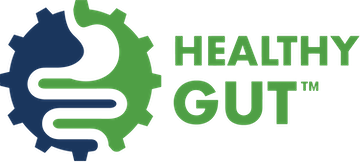The $6.5 Billion PPI Malpractice Mystery

Let’s say you’re bobbing in the ocean. Struggling to Breathe. Unable to catch your breath. Right now the most important thing in your life is air.
Suddenly, a hand reaches out and pulls you into a boat.
You can catch your breath. You are safe. You can relax. The pain is gone.
When we’re in pain, our brains are wired to make it stop no matter what, which is why taking an acid suppressing drug like a Proton Pump Inhibitor (PPI) feels like a breath of fresh air for someone suffering with heartburn.
But it can be a double-edged sword…
Did you know that recent research suggests that 50% of all of the 13.5 Billion dollars in PPI sales were unnecessary? And the worst part is, what if these unnecessary drugs used to treat your immediate pain were also causing long-term adverse effects on your health?
I know it sounds a bit ridiculous, but I promise it’s not science fiction. It’s really happening.
Getting Rid of Heartburn Is Such a Relief
Heartburn is a problem that 60% of adults in the US suffer with each year. And the TV ads, doctors, and friends tell us the solution is to pop acid suppressing pills like PPIs.
In 2009, as a country we spent 13.5 Billion dollars on these drugs.
Why? Because living with heartburn sucks. It makes eating unenjoyable, it ruins dates, it stops our work and it’s the last thing we want to feel after a hard day…
So when we’re offered a quick fix, approved from our doctors, it’s human nature to take it.
However, the heartburn and GERD problem isn’t being solved… these PPIs are just giving us temporary relief.
How PPIs Are Costing Us Our Health (And Billions of Dollars)
The pain you stop feeling when taking a PPI doesn’t just go away. It’s just transferred somewhere else. And that is a big problem no one is talking about.
Pain is a signal from the body that something is wrong. And PPIs just cover up that signal – they don’t make it go away.
For instance, did you know that PPIs cause significant health risks such as vitamin and nutrient deficiencies, increase in infections risk and bone fractures?
Not to mention, most people get psychologically addicted to them and believe they need to keep taking them to keep the pain away.
And that’s just the beginning, I’ll explain more later.
But what I think is even worse is the new research suggesting that possibly more than 50% of PPI prescriptions are improperly given to patients.
Here’s the biggest issue, the FDA originally only approved them for 4-8 weeks of usage. And recently the FDA has issued more warnings about their usage but only after being scientifically petitioned.
Most people I know have been taking PPIs much longer than they have been safely approved for. And with the passing of the Affordable Care Act (Obama Care) we are now paying for these prescription drug costs together, which is rather shocking when it’s all added up…
In other words, 50% of all PPI prescriptions might not be needed. These prescriptions carry significant side effects, which means we might all be wasting $6.5 Billion a year and causing more harm than good.
What PPI Drugs Actually Do
PPI stands for Proton Pump Inhibitor – a class of drugs that are used in situations/diseases associated with our stomachs and its acid production.
The drugs do exactly what their name suggests – inhibit the proton pumps in our stomachs, causing reduced stomach acid production.(1) The PPI inhibits the proton pump by chemically binding to it.
A good mental picture is to think of the inside of your stomach like the scary pictures of Mars. It’s red, hot, and covered in little volcanoes. These volcanoes are the proton pumps, and when we eat food they erupt with stomach acid…
Which is a really good thing. Stomach acid is very important for our health. Without enough of it, we don’t kill incoming parasites and bacteria and we don’t completely break down our food so our bodies can absorb all the minerals and nutrients. All of this creates some serious health risks.
The fascinating thing is the body knows this! It really doesn’t like it when we artificially suppress stomach acid levels. Studies show that it begins to fight back by making more proton pumps to increase acid levels back up to where they should be.
But in the end the body ends up losing the fight against these powerful drugs and our acid levels are suppressed to almost zero.
More on the implications of this in a minute. Let’s take a minute to talk about what PPIs help with, as it’s clear that they do offer some benefits.
The Brutal Facts: What PPIs Are Approved For…
First, it’s important to know that the FDA has approved PPIs for treatment of gastric ulcers, erosive esophagitis, peptic ulcer disease and gastroesophageal reflux disease (GERD). PPIs are also used to prevent ulcers associated with NSAIDs use as well as in prevention of stress ulcers and to lower potential gastric troubles in those taking blood thinners.(1) (2) (3)
Remember that the FDA only approved these drugs for 4-8 weeks of continuous usage. And for many people with the disorders above a short course of PPIs can really help them. However, the issue is that over time they have crept into the modern medicine toolbox to be used repeatedly for the same issue or for years on end for several ongoing conditions like GERD.
There are several types of PPIs:
- Nexium (Esomeprazole)
- Prevacid (Lansoprazole)
- AcipHex (Rabeprazole)
- Protonix (Pantoprazole)
- Kapidex (Dexlansoprazole)
- Prilosec (Omeprazole) (over-the-counter version available)
PPIs have been FDA approved for over 25 years. Prilosec was first approved in 1990 for use in the US. Currently, Nexium is the 3rd most prescribed drug in the US. It would be normal to assume that if these drugs were actually fixing the heartburn and GERD they are typically marketed towards that these conditions would be on the decline.
But sadly that isn’t the case at all.
60 Million Americans experience heartburn at least once a month, 25 Million experience symptoms daily and the diagnosis of GERD increased by 216% between 1998 and 2005.
Digging deeper into the scientific literature reveals some scary stuff.
The $6.5 Billion Question: Are PPIs Overprescribed?
Recent research studies have examined the idea that PPIs are being overprescribed. They looked at two main issues:
- Inappropriate usage of PPIs and other acid suppressing therapy (AST) upon admission to hospitals
- The rate at which patients are being discharged but inappropriately kept on these drugs
The stats from these papers are very shocking…
This study of 279 patients showed 73% inappropriate administration of PPIs and 69% of these people were sent home still on the medications.
This study conducted on inappropriate AST usage examined 213 patients admitted to a hospital who were studied over a 3-month period. It was found that acid suppressing therapy was inappropriately applied in 89.5% of those under study! When the authors of this study expanded their definition of what qualified as appropriate PPI use (i.e. assuming all GERD patients were given acid suppressing therapy appropriately) still only 30.9% of cases were appropriate (up from 10.5% before).
Another study of 1,769 non-ICU patients looked at appropriate use of acid suppressing therapy before, during and after hospital admission. Of these patients, 585 were already on AST and the authors deemed 26% of incoming patients already on these drugs to be inappropriate (total of 152). Then, during the hospital stay, 22% of patients received inappropriate therapy. And 54% of those 22% who were started on AST were discharged with prescriptions for these drugs inappropriately.
Yet another study looked at primary care patients and found that 54% of those prescribed PPIs were inappropriate. Many times, these were inappropriately prescribed for elderly populations and in “just in case” situations.
Finally, this review paper contains many more studies like these that show inappropriate use of AST in the studies described above ranged from 25% to 70%.
After going through these studies, it’s clear that doctors are using PPIs in many inappropriate ways that go against recommended, approved treatment guidelines. And it’s not just a minor problem. Whether it’s 25%, 50% or more, that’s millions of people being mistreated.
We are at the most advanced age of medicine in the human race, and yet we currently have a coin’s flip chance of these drugs being used correctly!
It’s appalling to think that somewhere around 50% of all of these prescriptions are being inappropriately administered, especially because these drugs are not harmless.
In fact, they carry significant short-term risks to some users and all users are subject to the long-term risks that no one seems to be talking about.
Are PPIs Actually Hurting More Than Helping?
Sadly, it’s not common for doctors to tell us about the short-term side effects of the drugs they prescribe us, let alone ever talk about the long-term effects these drugs have. I’m not sure they do this intentionally but I’m guessing you probably didn’t know that PPIs carry some significant short-term and long-term health risks.
The short-term issues range from diarrhea, headache in up to 10% of people, but also occasionally cause severe adverse reactions such as hepatic, renal, skin, and bone marrow toxicity and anaphylaxis.
For those who don’t immediately stop PPIs because of the above mentioned issues, they end up putting their long-term health at a higher risk of:
- Clostridium difficile (4) (5)
- Campylobacter jejuni gastroenteritis (13)
- Small Intestinal Bacterial Overgrowth (SIBO) (7)
- Pneumonia (6) (8)
- Mineral/vitamin deficiencies (6) (9)
- Bone fractures (6) (8) (11)
- Cancer (10)
- IBS (12)
- Crohn’s disease (12)
- Ulcerative Colitis (12)
- And cause unwanted drug interactions (14) (i.e. Clopidogrel)
But the risks don’t stop there, there are a whole list of serious health issues no one wants if we look at the connection between low stomach acid and health. My mentor Chris Kresser cites these conditions associated with low stomach acid:
- Stomach cancer
- Allergies
- Bronchial asthma
- Depression, anxiety, mood disorders
- Pernicious anemia
- Skin diseases, including forms of acne, dermatitis, eczema, and urticaria
- Gallbladder disease (gallstones)
- Autoimmune diseases, such as Rheumatoid arthritis and Graves disease
- Irritable bowel syndrome (IBS), Crohn’s disease (CD), Ulcerative colitis (UC)
- Chronic hepatitis
- Osteoporosis
- Type 1 diabetes
The worst part about all these risks is that PPIs and acid suppressing therapy do NOT actually fix the root problem and open us up to some scary long-term health issues…
Which is why I called this article malpractice – Wikipedia lists the definition as:
“Medical malpractice is professional negligence by act or omission by a health care provider in which the treatment provided falls below the accepted standard of practice in the medical community and causes injury or death to the patient, with most cases involving medical error.”
As the studies show, there’s a high chance that many people are both being inappropriately treated and that these treatments are causing them harm.
If you are on a PPI, or other acid suppressing therapy, and you want a different way to get rid of the pain, there are lots of ways to help these issues.
Naturally Getting Rid of Heartburn (You Have Other Options)
Contrary to what you might have been told, there are many other options available with less side effects to help you if you are suffering from heartburn, acid reflux or GERD.
And it starts with understanding that the issue isn’t that you’re producing too much acid.
Instead, it’s actually the opposite – too little acid.
When too little acid is produced, several things begin going wrong that increase the pressure in your stomach and cause small amounts of acid to get into the esophagus and cause the pain you feel.
The root cause of this low stomach acid can be multifactorial. And after overcoming this issue myself and helping 100s like me, we decided to do a dedicated 3-hour presentation on how to overcome heartburn naturally.
I encourage you to check it out here: http://heartburnhelp.scdlifestyle.com
And in the meantime, I want to urge you to start SCD, or another low-carbohydrate diet, to get some relief. We’ll be talking about it in depth on the training call.
There’s actually new research showing switching to a real food diet and/or a low-carbohydrate diet are just as effective for GERD.
Duke University has found:
“Patients who had failed conventional GERD treatment (acid-stopping drugs) experienced a complete resolution of their symptoms within one week of adopting a low-carbohydrate diet. This was true in spite of the fact that some of the patients continued to drink alcohol, smoke, and engage in other “GERD-unfriendly” lifestyle habits.”
And in another study at Duke, a low-carbohydrate diet was just as effective as PPIs in a group of obese patients with GERD.
So, get started by switching your diet and then make sure you arm yourself with the best info for getting rid of heartburn naturally.
On this presentation, we go over the root causes of heartburn and share the step-by-step proven protocols to get rid of them and let your body get back to functioning normally.
http://heartburnhelp.scdlifestyle.com
-Steve
Did You Like this Article?
Subscribe to our newsletter to receive email notifications, some ways to find relief, and next steps.

